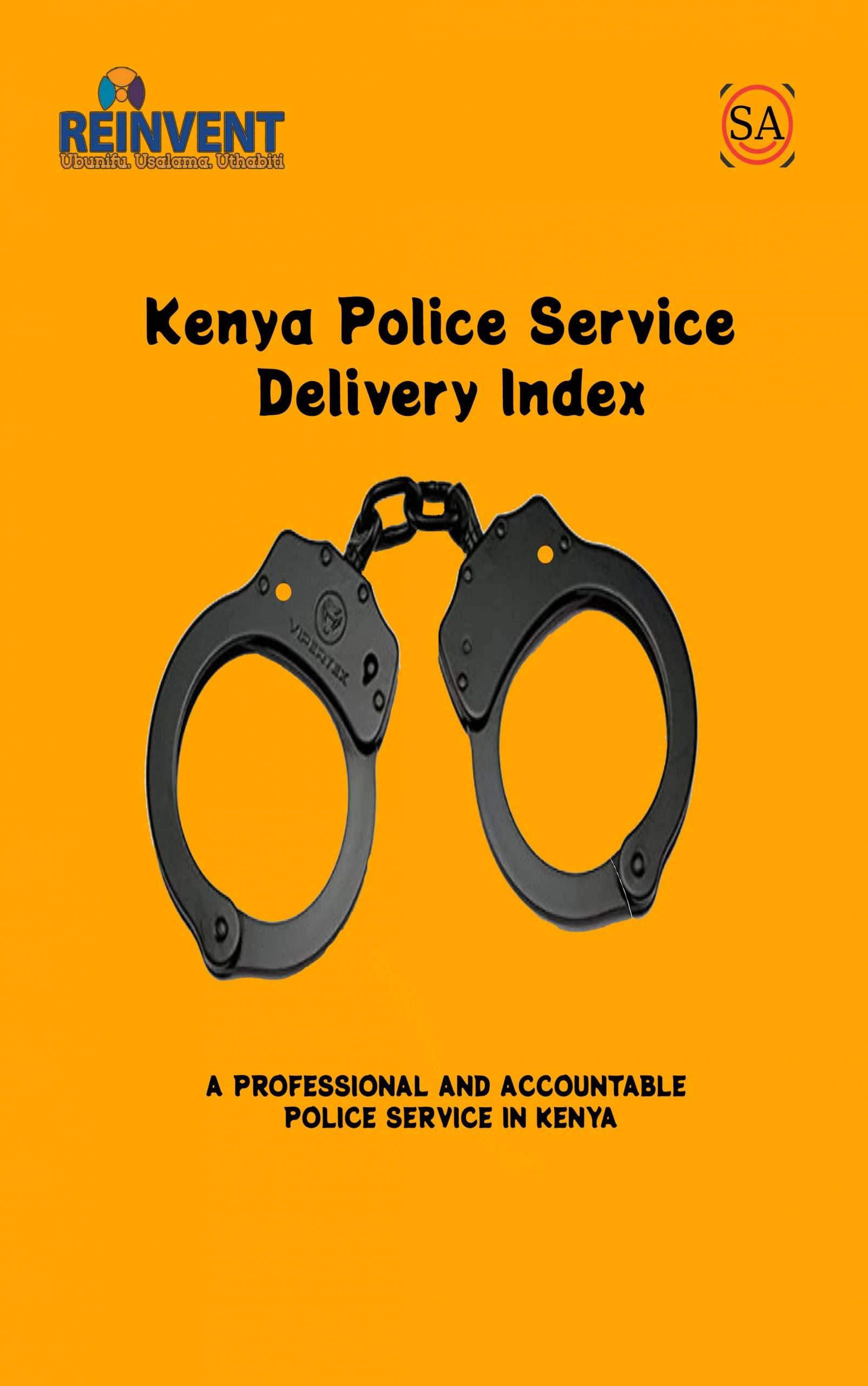
Police Service Delivery Index - Kenya
Reports
March 11, 2021
Depending on the needs in the community, the stations have either
focused on accountability or ignored it. Professionalism has been relegated to the official
training of the police officers as the only yard stick of measurement. The role of culture and
behavioral influence to the two measures are assumed and yet, these remain important
in the different contexts that the officers operate. – The PSDI
Summary
The increasing call for the institutionalization of reforms has driven the creation of tools aimed at assessing professionalism within both the private and public sectors. Simultaneously, the recognition of the significance of public engagement and feedback has contributed to a growing emphasis on accountability. In response to these needs, the REINVENT Programme initiated a groundbreaking study tasked with pioneering the development of a Police Service Delivery-Index. This index aims to unpack the intricacies of service delivery and establish measurable variables within the context of Kenya’s National Police Service.
The study’s foundation lies in the Balanced Scorecard (BSC) model, a management approach that translates an organization’s mission and strategy into a set of performance metrics. This framework encompasses professional and accountable measures intertwined with various perspectives, encompassing both leading and lagging indicators. The study’s application of this model involves four distinct clusters, each representing a unique perspective: the staff perspective (police officers), the general community perspective, the customer perspective (individuals in custody), and the resource perspective (national government). Within this framework, the study asserts that professionalism precedes accountability within the police station context. Professionalism attributes function as the leading indicators, guiding the path towards achieving accountability attributes, which serve as the lagging indicators.
To effectively capture insights from these different perspectives, the study engaged a diverse set of respondents, including police officers, community members, individuals in custody, and representatives from the national government responsible for resource allocation. The study’s scope is centered on service delivery specifically within the police station, omitting policy directives and activities beyond this foundational point of citizen service.
It’s important to note that while a comprehensive understanding of the criminal justice system entails examining the judiciary, prisons, and various policing units, this study focused solely on service delivery within police stations. Interviews were not conducted with entities such as the Directorate of Criminal Investigations (DCI) or specialized units within the National Police Service (such as the Anti-Terrorism Police Unit or Anti-Stock Theft/Border Patrol). Therefore, any policy directives outside the immediate realm of the police station, which serves as the primary service delivery point for citizens, fall beyond the scope of this research.
Challenges stemming from the COVID-19 pandemic and its associated lockdown policies impacted the study’s response rate, resulting in an average rate of 86 percent. Despite these challenges, the study employed a data collection approach centered on quantitative surveys, supplemented by insightful quotes and anecdotes that enrich the report. Data was collected from various police stations, including Shaurimoyo, Kasarani, and Kilimani in Nairobi County, as well as Isiolo police station in Isiolo County and Nanyuki police station in Laikipia County. The study’s main focus involves evaluating a set of variables to ascertain their viability as effective measurement tools.
